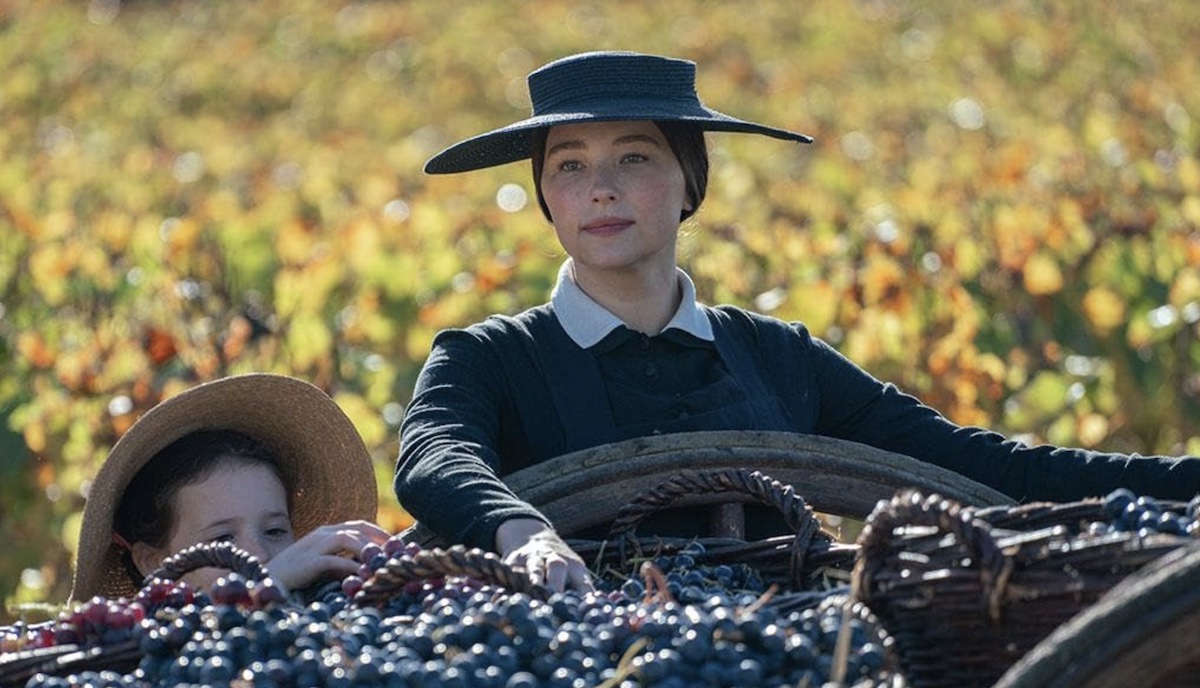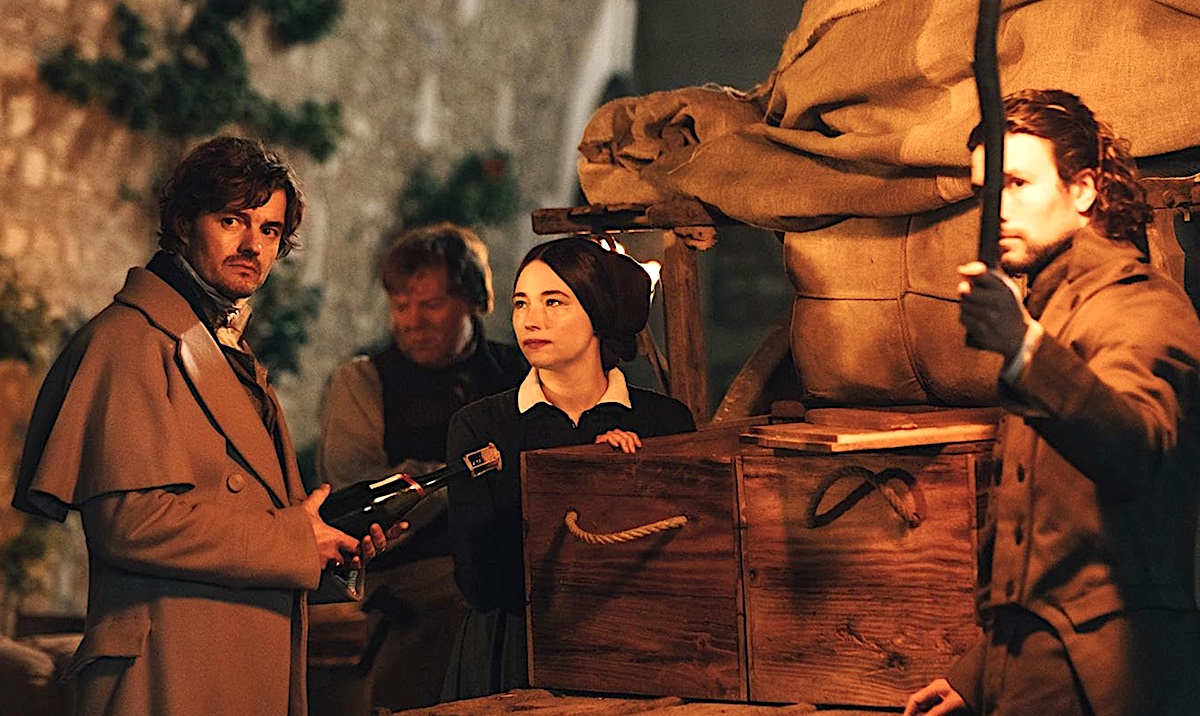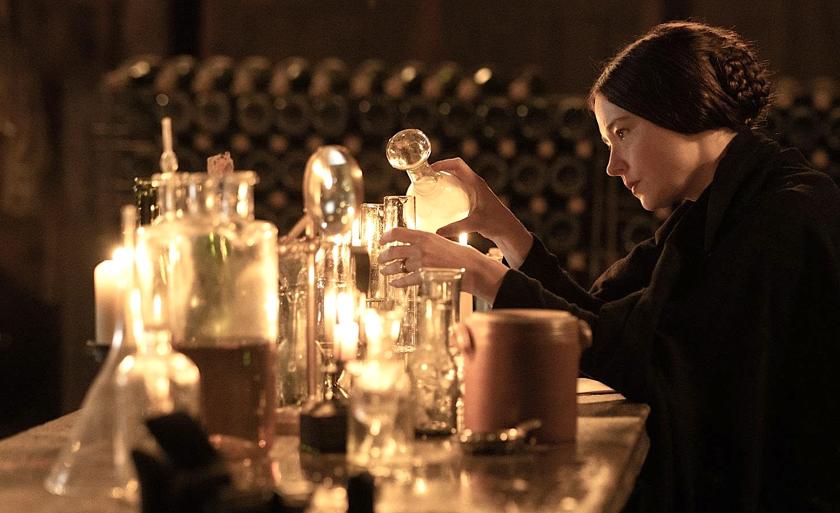The book by Tilar Mazzeo on which Thomas Napper's film is based is subtitled “The Story of a Champagne Empire and the Woman Who Ruled it”, though one suspects that the life of Barbe-Nicole Ponsardin was a little less Mills & Boon-ish than the version seen here.
Nonetheless, the film is an enjoyable romp through the picturesque vineyards around Reims during the turbulent days of the Napoleonic wars, as Barbe marries François Clicquot and finds herself faced with a historic choice.
Barbe is played by Haley Bennett (also one of the producers) as a woman who gradually reveals hidden depths and steely resolve. Her marriage was arranged between the two families, but the couple are portrayed here as being madly in love, frequently lit by candlelight and prone to sentimental indulgence. “Can we live in a hideaway our whole lives, just the two of us, kept safe from the rest of the world?” asks François wistfully.
Tom Sturridge’s François looks more like a wandering Romantic poet than the scion of a very business-oriented family – the Clicquots were big in textiles and banking as well as vineyards – and he teaches Barbe how to sing to the grapevines to encourage their growth. “They like you,” he tells her. “They think you’re perfect.” Bryce Dessner's strings-dominated score tugs shamelessly at our heartstrings. She certainly seems to have a feel for the grapes and how to blend them, for instance creating a very palatable rosé champagne, but the couple’s idyllic union crashes traumatically when François is felled by a mystery illness. His father Philippe (a stern Ben Miles) immediately succumbs to the patriarchal assumption that a woman can’t run a business and is about to accept an offer from the Möet family, personified by Nicolas Farrell’s sneery Jean-Remy Möet, to buy the Clicquot hectares.
She certainly seems to have a feel for the grapes and how to blend them, for instance creating a very palatable rosé champagne, but the couple’s idyllic union crashes traumatically when François is felled by a mystery illness. His father Philippe (a stern Ben Miles) immediately succumbs to the patriarchal assumption that a woman can’t run a business and is about to accept an offer from the Möet family, personified by Nicolas Farrell’s sneery Jean-Remy Möet, to buy the Clicquot hectares.
Barbe, of course, has other ideas, and insists firmly that she intends to take over the champagne-making. The vineyards were, after all, left to her in Francois’s will. Philippe, to his credit, recognises that he can’t argue with a force of nature, and agrees (through gritted teeth) to let her take charge.
Screenwriter Erin Dignam is fond of promoting the female empowerment angle, which is often delivered with scant regard for subtlety. When, for instance, Barbe proposes to circumvent the traditionally hierarchal structure of the wine-making business by replacing it with an egalitarian round-table approach, it earns her a lecture from the business manager Droite (Paul Rhys). So, she retorts, “I must give up my idea of the wheel because it makes men uncomfortable?” Later, when she falls foul of a Napoleonic stricture against women managing companies, she protests that “I am telling the truth as I know it, even though I see that telling the truth means I might not be readily understood by men.” But she backs her hunches and engages in some bold strategies to keep the business on the road. She figures out a way to export champagne to Amsterdam, despite Napoleon’s trade embargoes against his numerous enemies, though when the champagne is spoiled by the hot summer weather it almost sinks the Cliquot operation for good. Luckily, daredevil wine salesman Louis Bohne (Sam Riley, pictured above at left) sees the bigger picture, and takes the product to St Petersburg, where the Tsar becomes a big fan.
But she backs her hunches and engages in some bold strategies to keep the business on the road. She figures out a way to export champagne to Amsterdam, despite Napoleon’s trade embargoes against his numerous enemies, though when the champagne is spoiled by the hot summer weather it almost sinks the Cliquot operation for good. Luckily, daredevil wine salesman Louis Bohne (Sam Riley, pictured above at left) sees the bigger picture, and takes the product to St Petersburg, where the Tsar becomes a big fan.
Despite the slightly melodramatic presentation, it’s a fascinating story which may make you feel inclined to check out the source material for further enlightenment. Or, throwing caution to the winds, even to pop open a bottle of Veuve Clicquot, with its distinctive yellow label (48 quid in Tesco, though Clubcard discounts are available).















Add comment